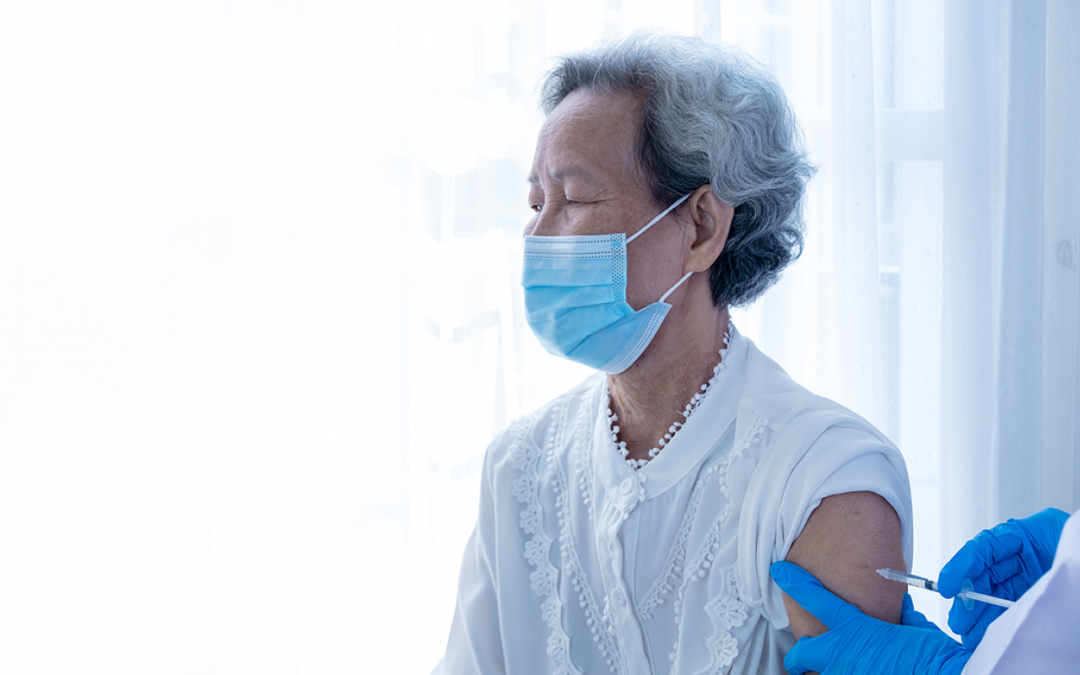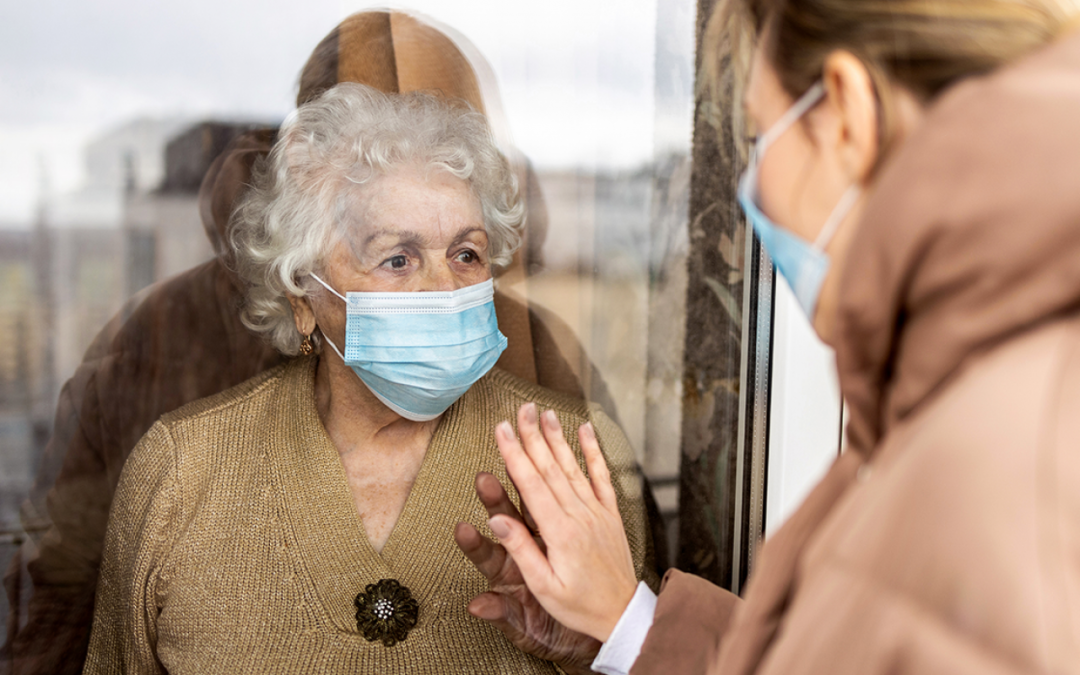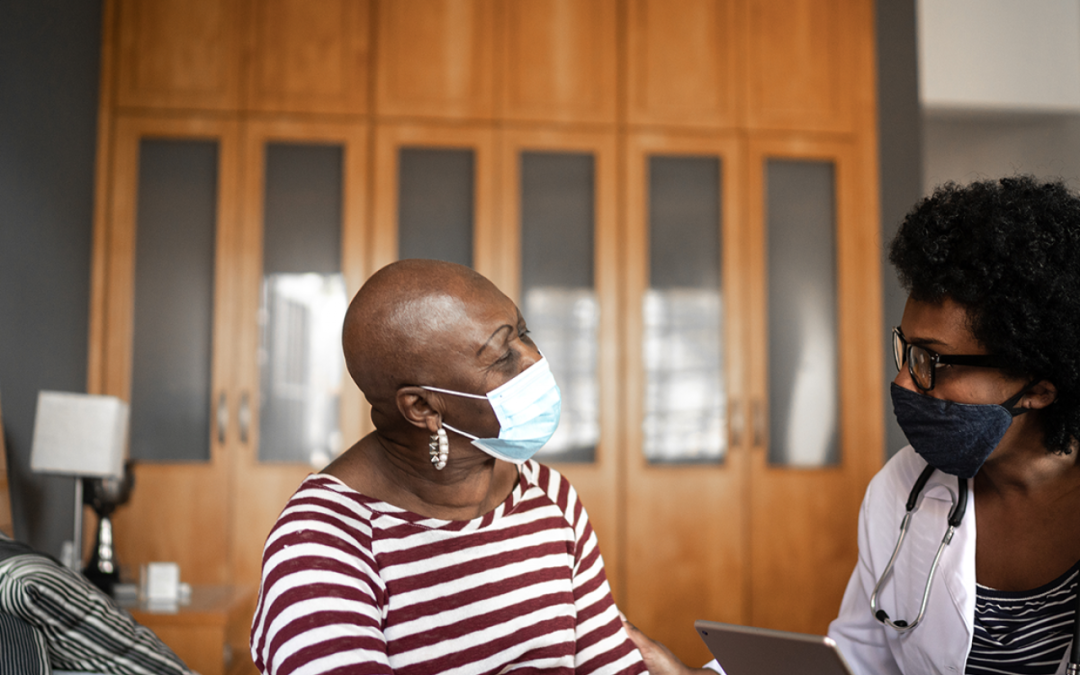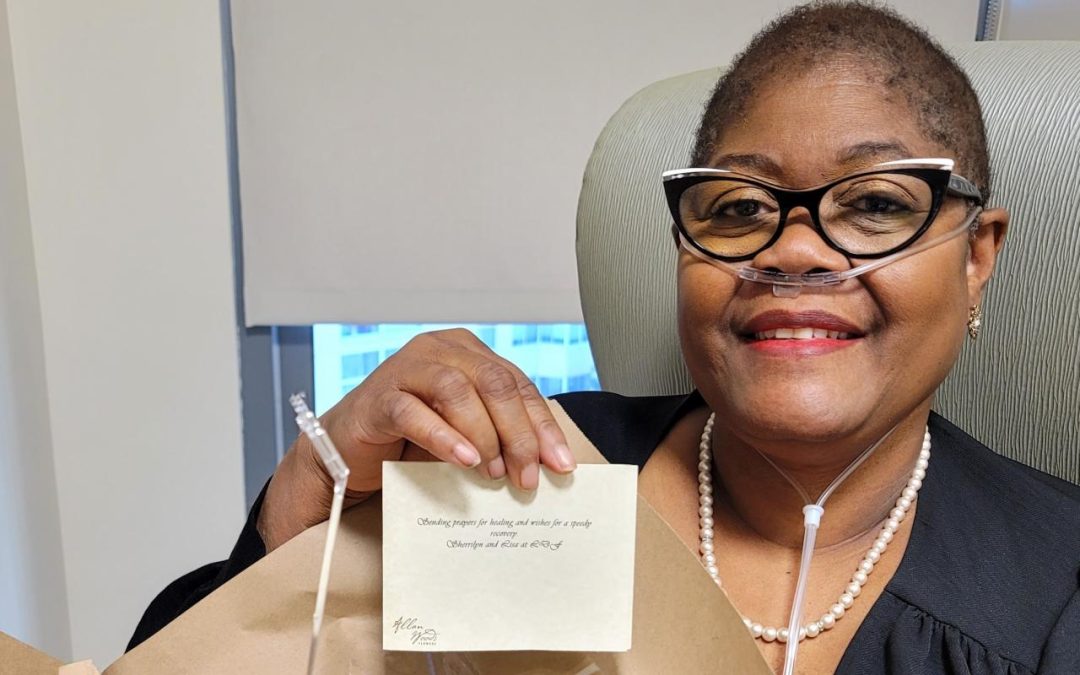Government response has been insufficient to mitigate the impact of a public health crisis that is compounding decades of exclusion and discrimination.

Generations Journal, vol. 46, no. 1 (Spring 2022)

Government response has been insufficient to mitigate the impact of a public health crisis that is compounding decades of exclusion and discrimination.

Six lessons learned from 12 countries’ vaccine distribution to elder care staff and residents.

COVID-19 and the Acute Care of Older Adults

These guest editors have the future firmly in mind and can envision a better one.

Exploring COVID-19 impacts via equity, diversity, and inclusivity lenses and proposing systemic solutions.

Lessons learned from this public health crisis must bring about massive change in aging services.

‘Federal and many state public health responses to COVID-19 did not prioritize HCBS.’

Although deemed essential, the quality of direct care jobs falls short of their worth.

The crucial link between equitable solutions and better outcomes for older adults and their families.

One Black woman’s two-week hospital journey through COVID-19 and our healthcare system.
Generations Journal, vol. 46, no. 1 (Spring 2022)
Abstract: The global health pandemic exacerbated existing economic disparities for many older adults who struggled as a result of structural inequality. Even before the onset of COVID-19, many older adults of color showed signs of financial precarity as they were more...
Abstract: This article examines how elder care providers across the world handled the COVID-19 vaccine rollout. Its focus is on residential settings—nursing homes, group homes, and assisted living residences—though it also has information from providers on the...
Abstract: This article unveils stories from a “lived experience” by frontline medical-surgical nurses caring for SARS-CoV-2 (COVID-19) using a compilation of written and verbal examples. The article intends to enrich the readers' perspective regarding nurses'...
In this Spring 2022 issue of Generations Journal, authors reflect on the pain and the suffering, especially for older adults, caused by the COVID-19 pandemic and policy makers' response. It also covers individual and systemic mistakes, many derived from disparities...
The COVID-19 pandemic and its Delta, Omicron, Deltacron, and additional variants have upended reality and transformed society. Since tracking began in March 2020 through April 2022, there have been 80,476,479 COVID-19 cases and 986,123 deaths (Centers for Disease...
Abstract: This article reviews the arc of the first year and a half of the COVID-19 pandemic from the perspective of aging services and describes key lessons learned about vulnerabilities and strengths in the aging services and long-term care system the crisis brought...
Abstract: The COVID-19 pandemic has had an enormous impact on older adults and people with disabilities everywhere, but one area that has not been fully examined is how it affected home- and community-based services (HCBS) systems. This article fills some of that gap...
Abstract: During and beyond the COVID-19 pandemic, direct care workers have served as the paid frontline of support for millions of older adults and people with disabilities. Yet poor-quality jobs continue to threaten their livelihood and this job sector. This article...
Abstract: This article highlights the racial/ethnic disparities predating COVID-19 in long-term care (LTC) settings that contributed to the disproportionate impacts of the pandemic on older adults of color, shares insights on the potential consequences of failing to...
Abstract: The author describes her personal experience having COVID-19 and an acute case of pneumonia, and how COVID-19 has exposed long-known racial disparities in healthcare. Key Words: COVID-19, pneumonia, healthcare inequities, racial inequities On September 9,...
Abstract: The COVID-19 pandemic has made starkly clear that the public health system in the United States can significantly impact the health and well-being of older adults. Prior to the pandemic, healthy aging was not prioritized by public health agencies, despite...
Abstract: More than 60% of older adults enter the hospital through the Emergency Department. GEDs have demonstrated their heightened relevance during the pandemic in providing age-appropriate care and strengthening future public health emergency preparedness through...
Abstract: Journalist Soledad O'Brien reflects on the past two years of the COVID-19 pandemic, the media's role in dispensing enough legitimate information, and lessons she learned about what's most important. Key Words: COVID-19, vaccines, social isolation, media,...
Abstract: Within the discipline of public health, it is commonly understood that health outcomes are influenced by more than genetics and behavior. Many health problems can be firmly linked to a political determinant that created and is perpetuating health inequities...
Abstract: The COVID-19 pandemic has had a significant impact on the state of Mississippi. As multiple waves continue to challenge public health resources, widespread racial, ethnic, and age-related disparities have highlighted new challenges and opportunities for a...
Abstract: Throughout the course of the pandemic, the mental health of many has suffered due to social isolation, disruptions to daily living, and limitations in participating in previously enjoyed activities. This article provides an overview about the mental health...
Abstract: When older adults came together in focus groups to share their experiences during the first 18 months of the COVID-19 pandemic, they told of loneliness, anxiety, and depression; physical and cognitive decline; and heartbreak over losing family members and...
Suggested citation for articles in this issue: [Last Name(s), First Name(s)]. “Article Title.” Generations Journal, vol. [#], no. [#] [season and year (ex. Fall 2024)]. [URL]
Generations Journal is the quarterly journal of the American Society on Aging. Each issue is devoted to bringing together the most useful and current knowledge about a specific topic in the field of aging, with emphasis on practice, research, and policy.